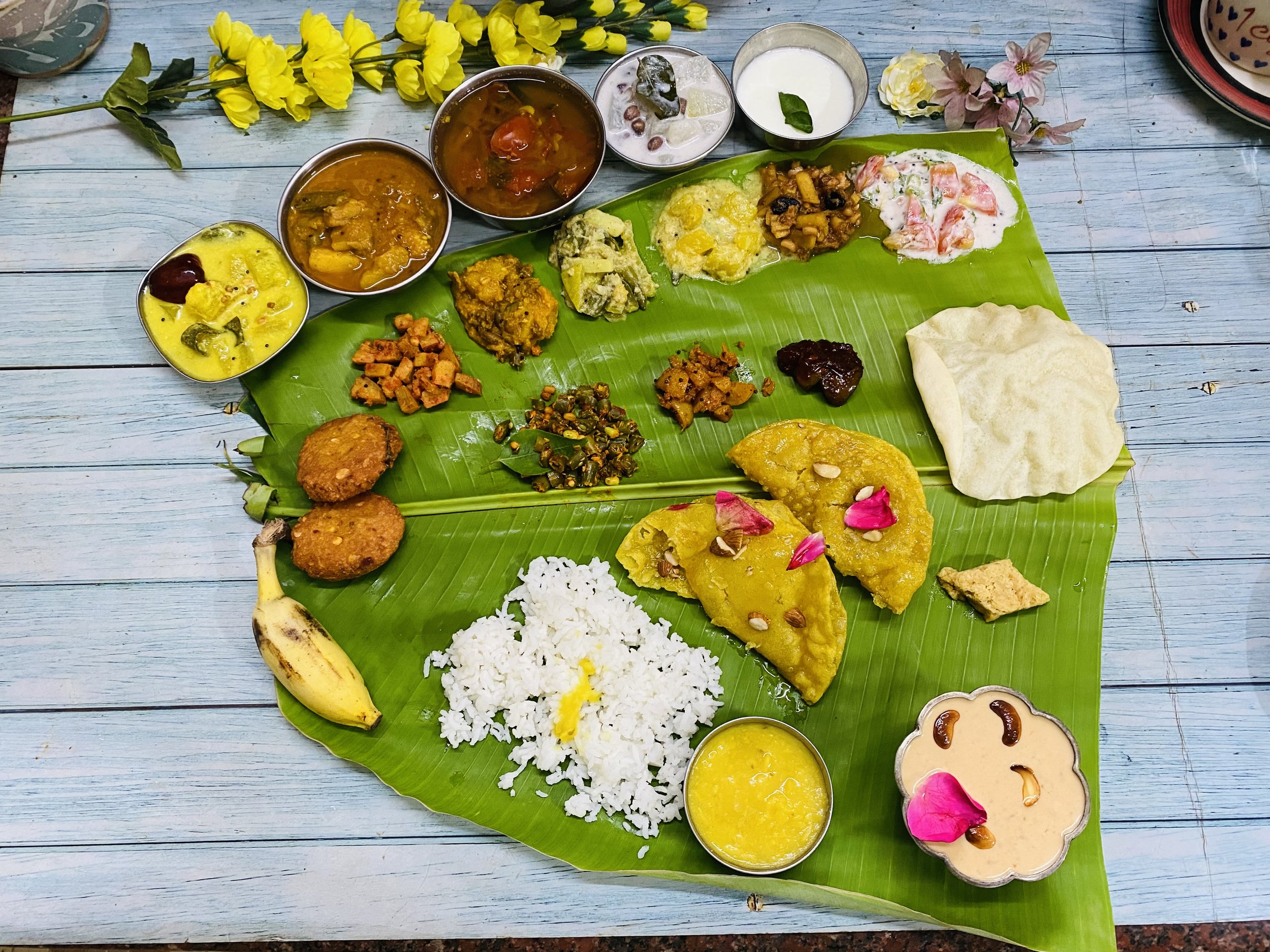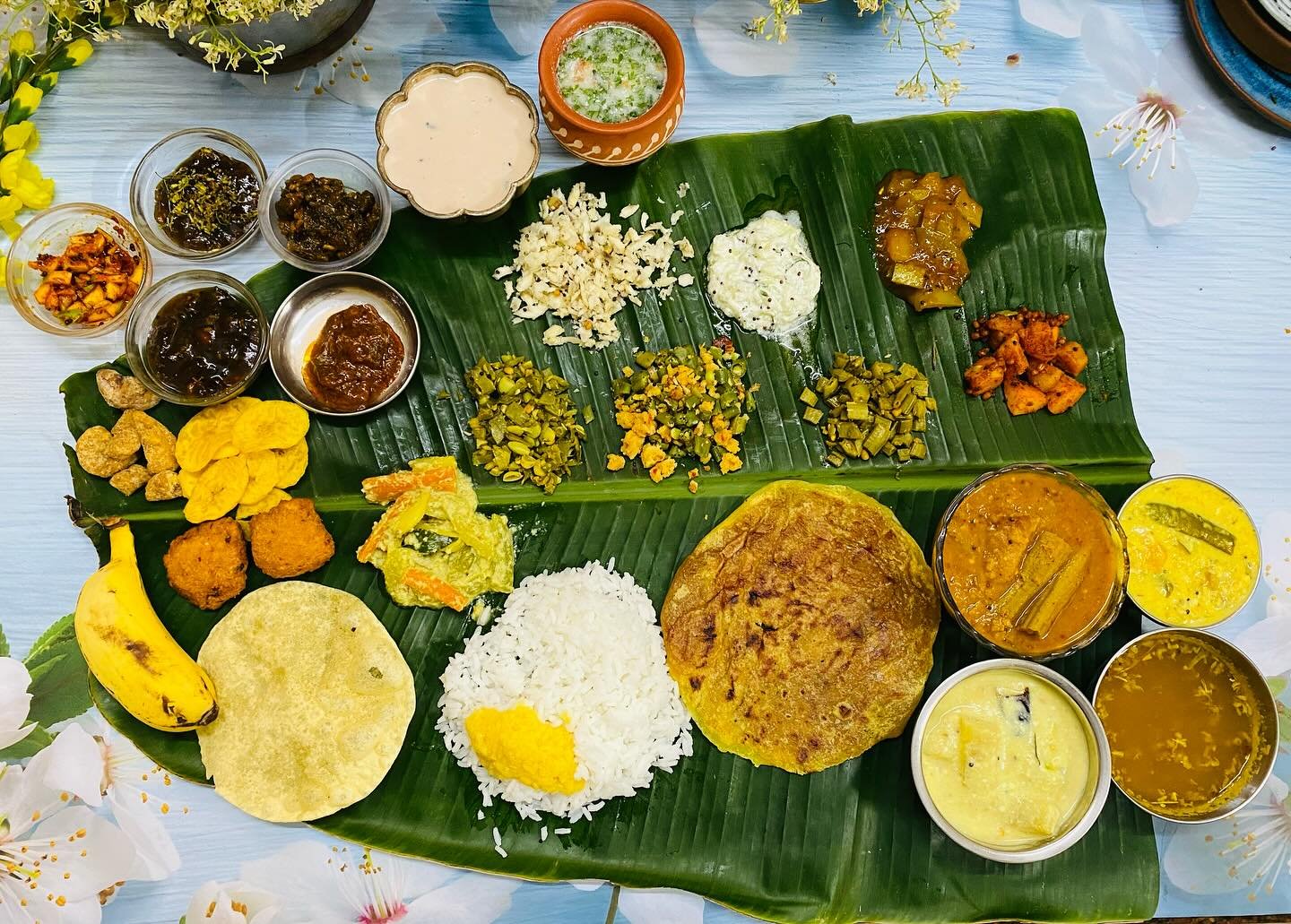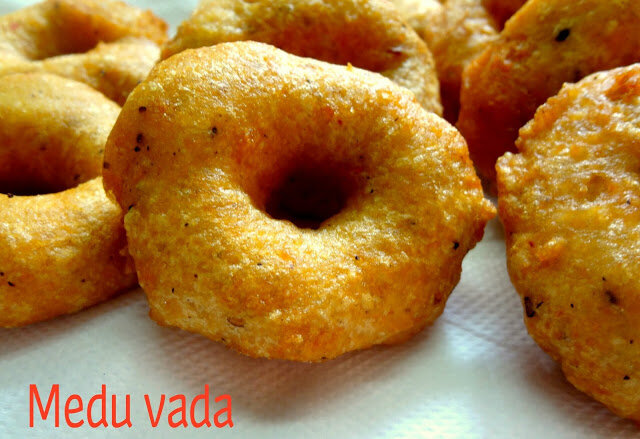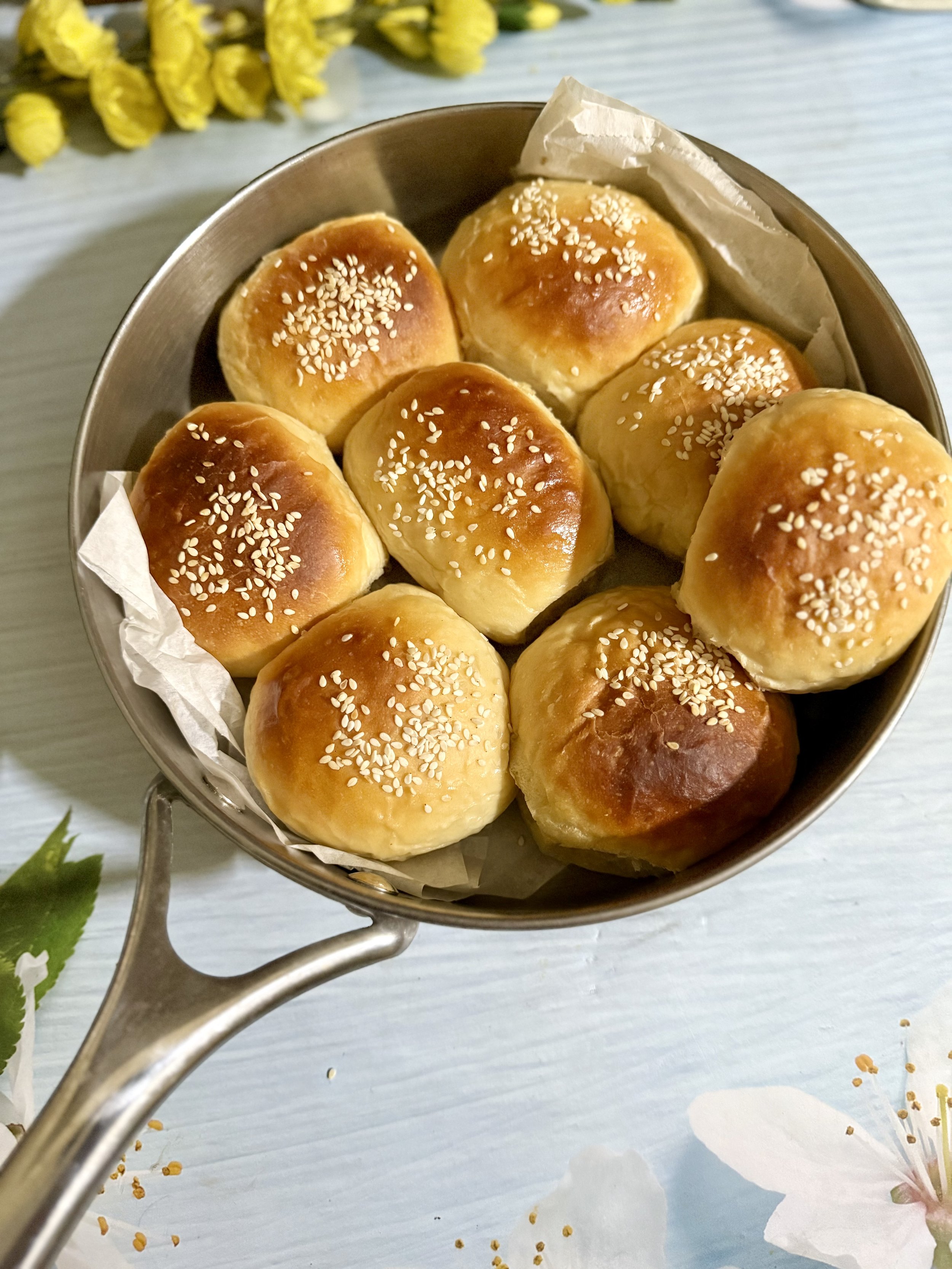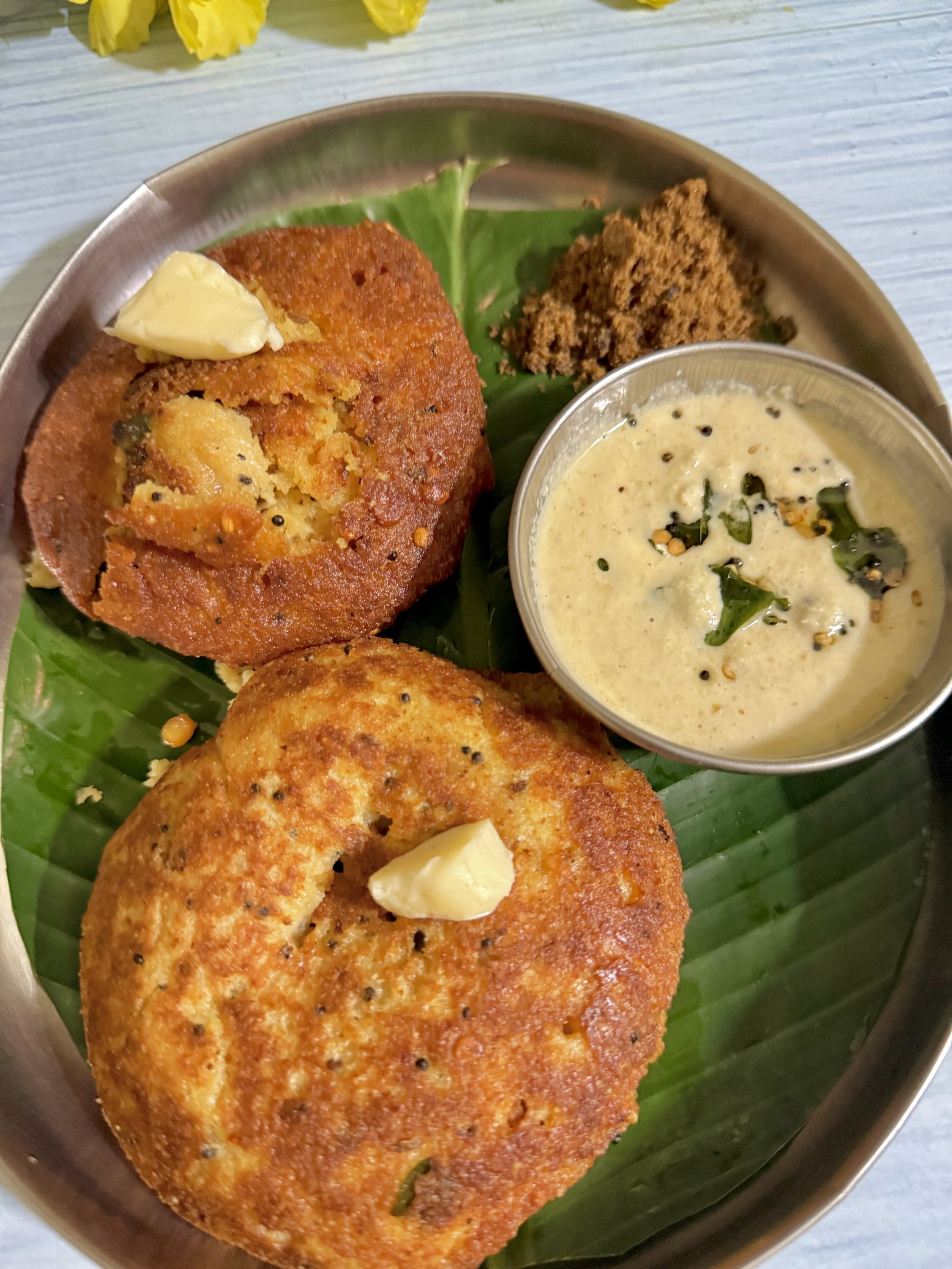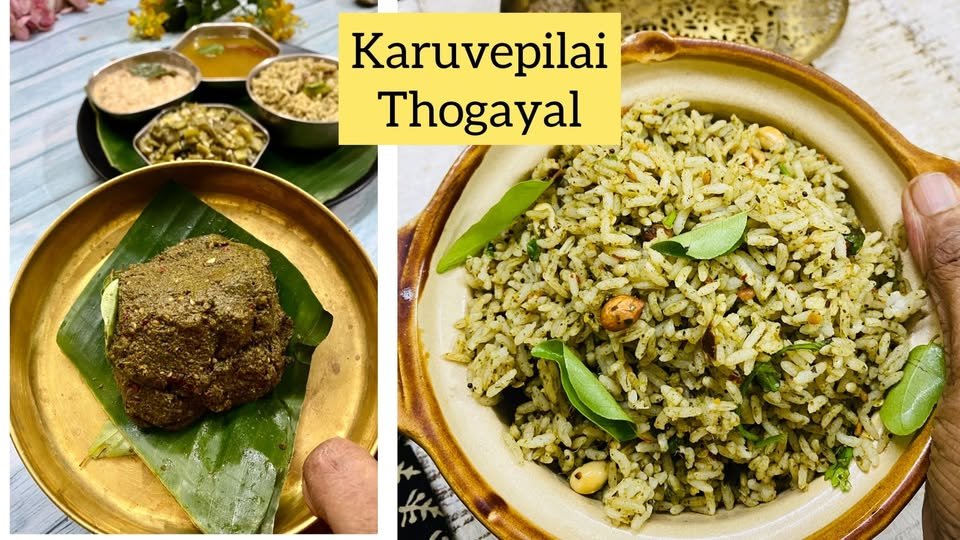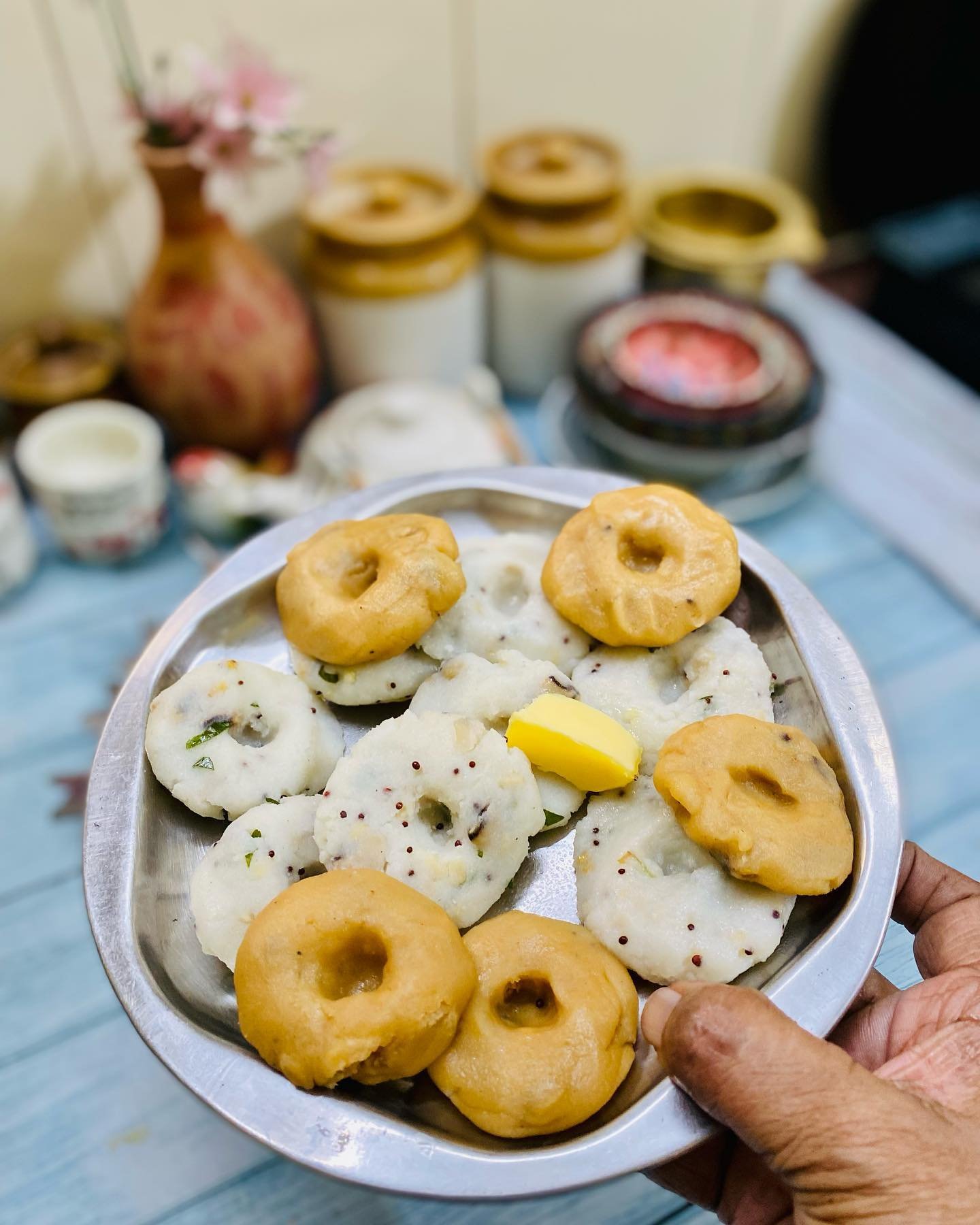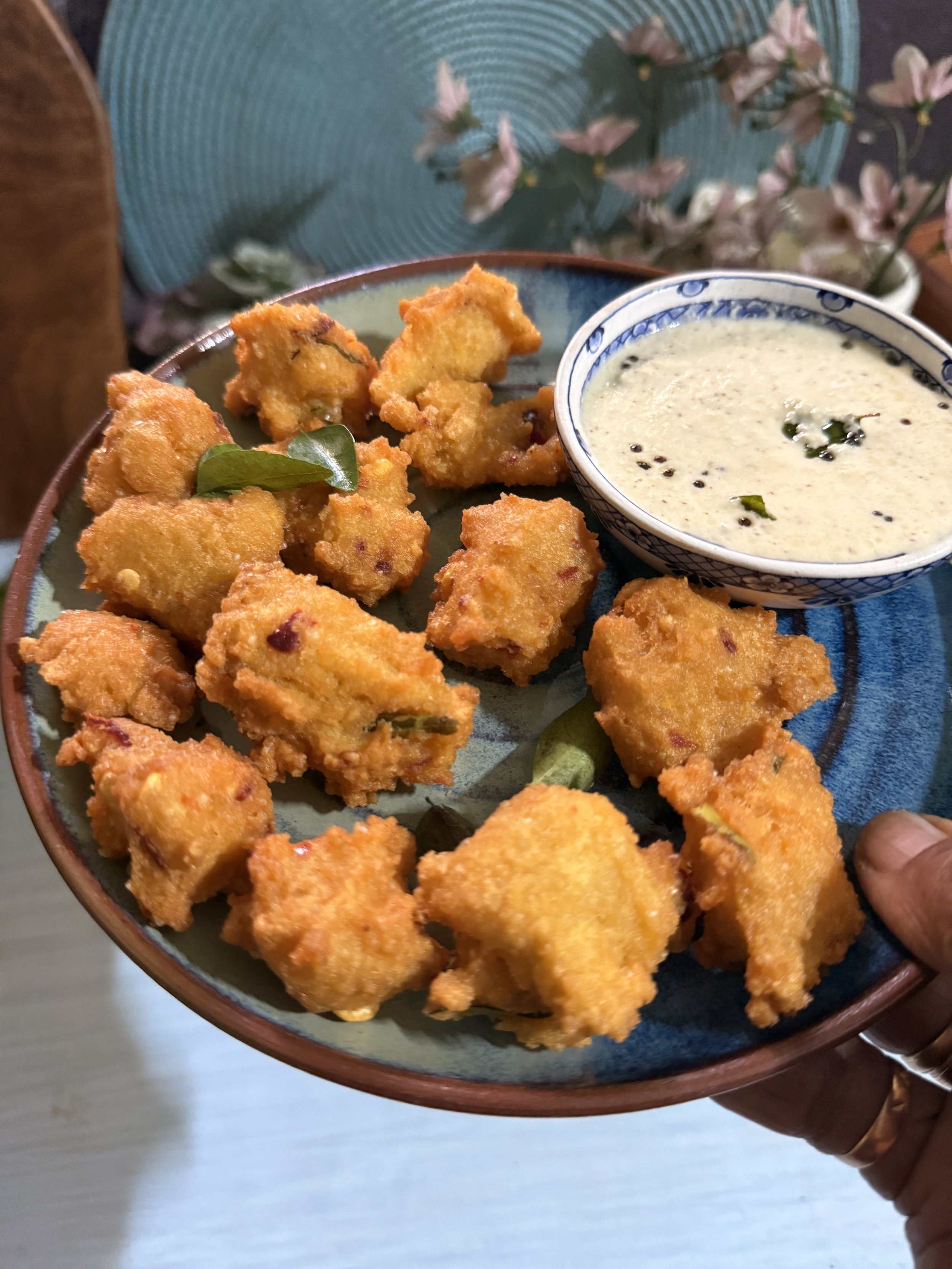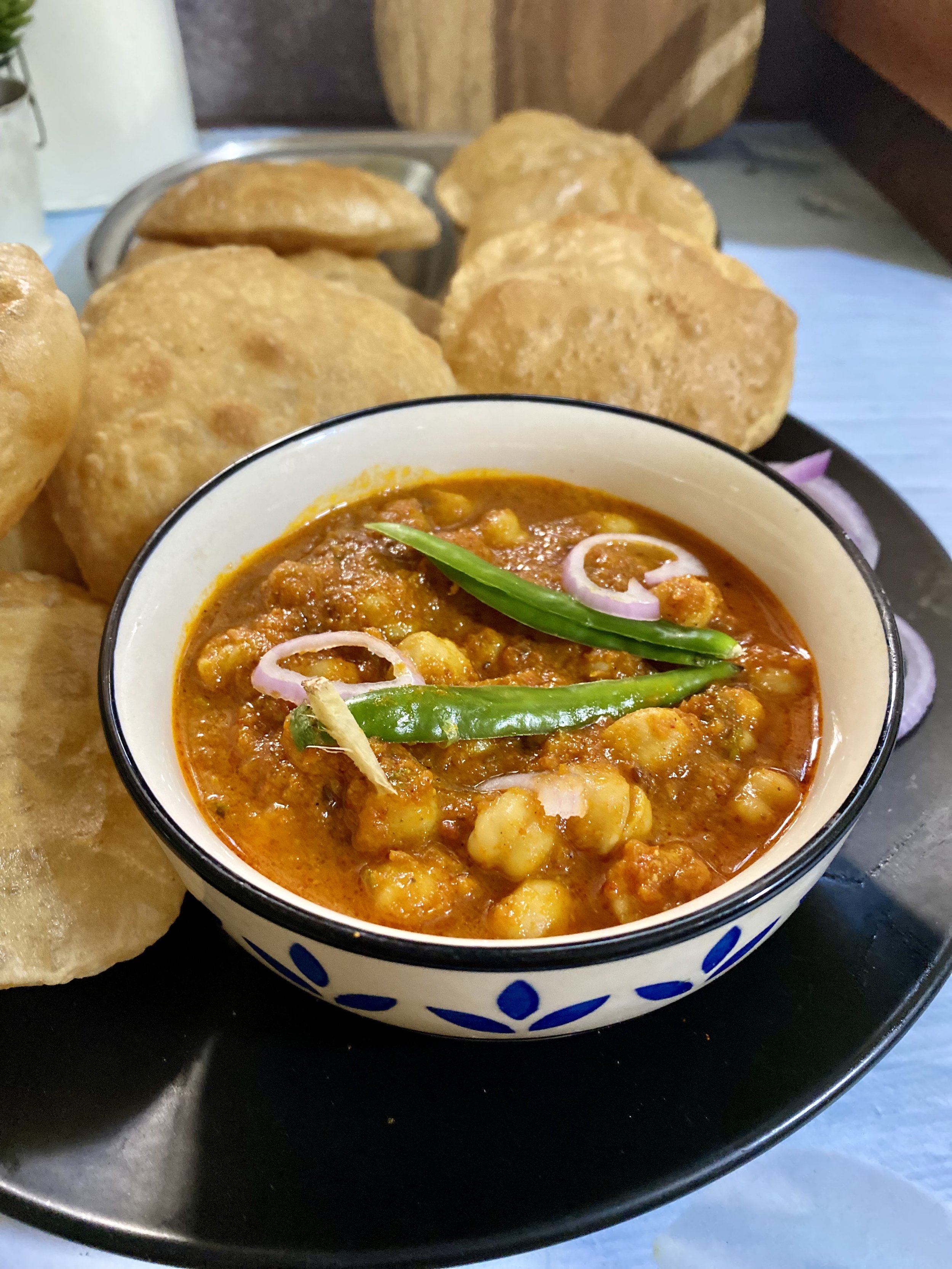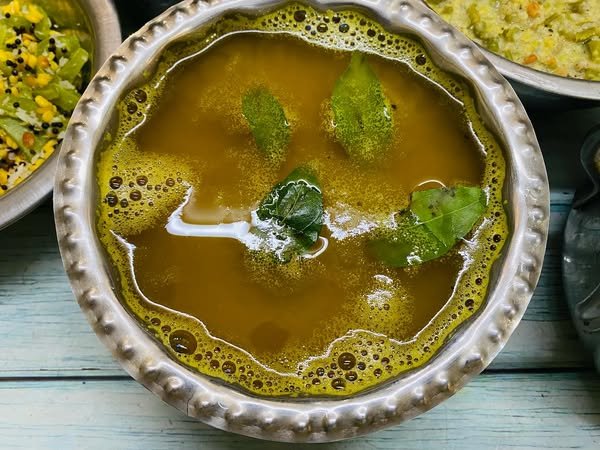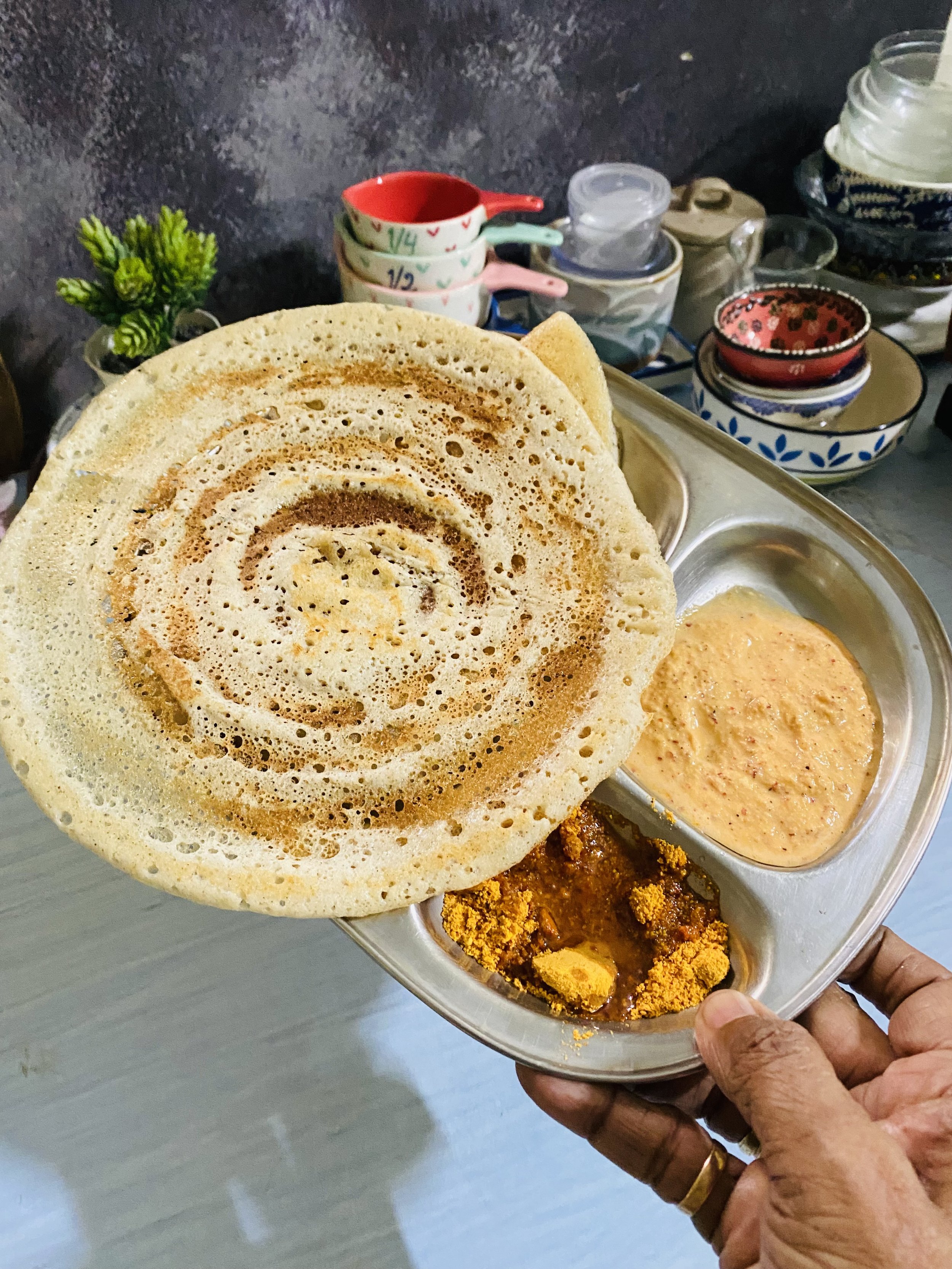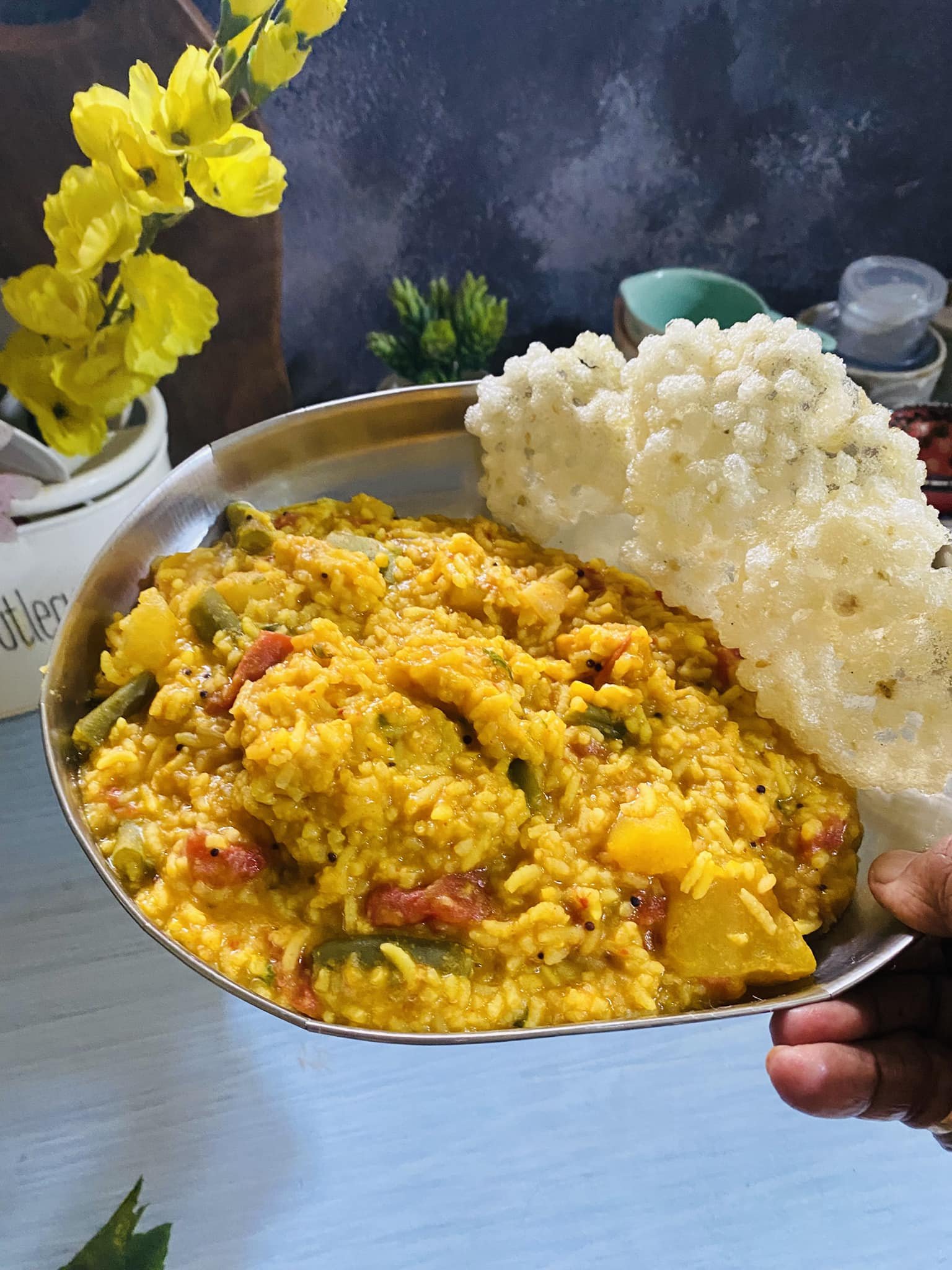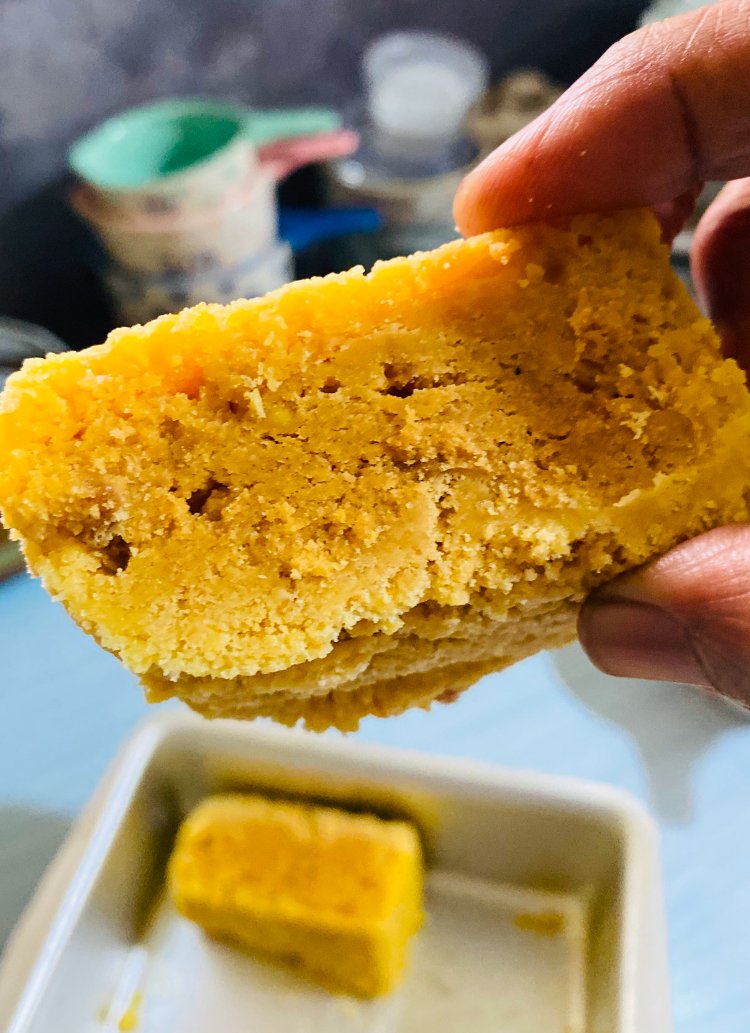Spicy sweet mango pickle
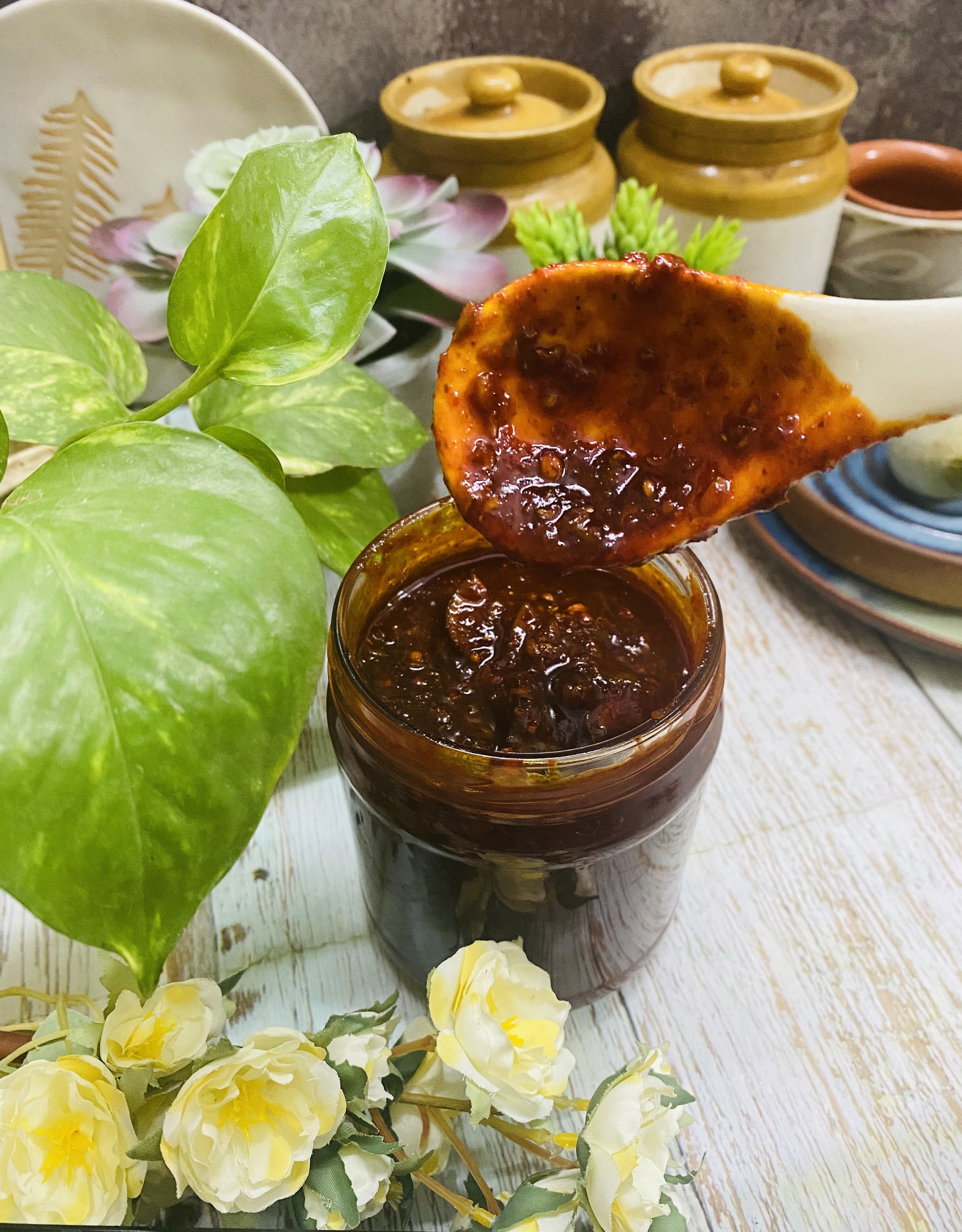
Sweet spicy mango pickle
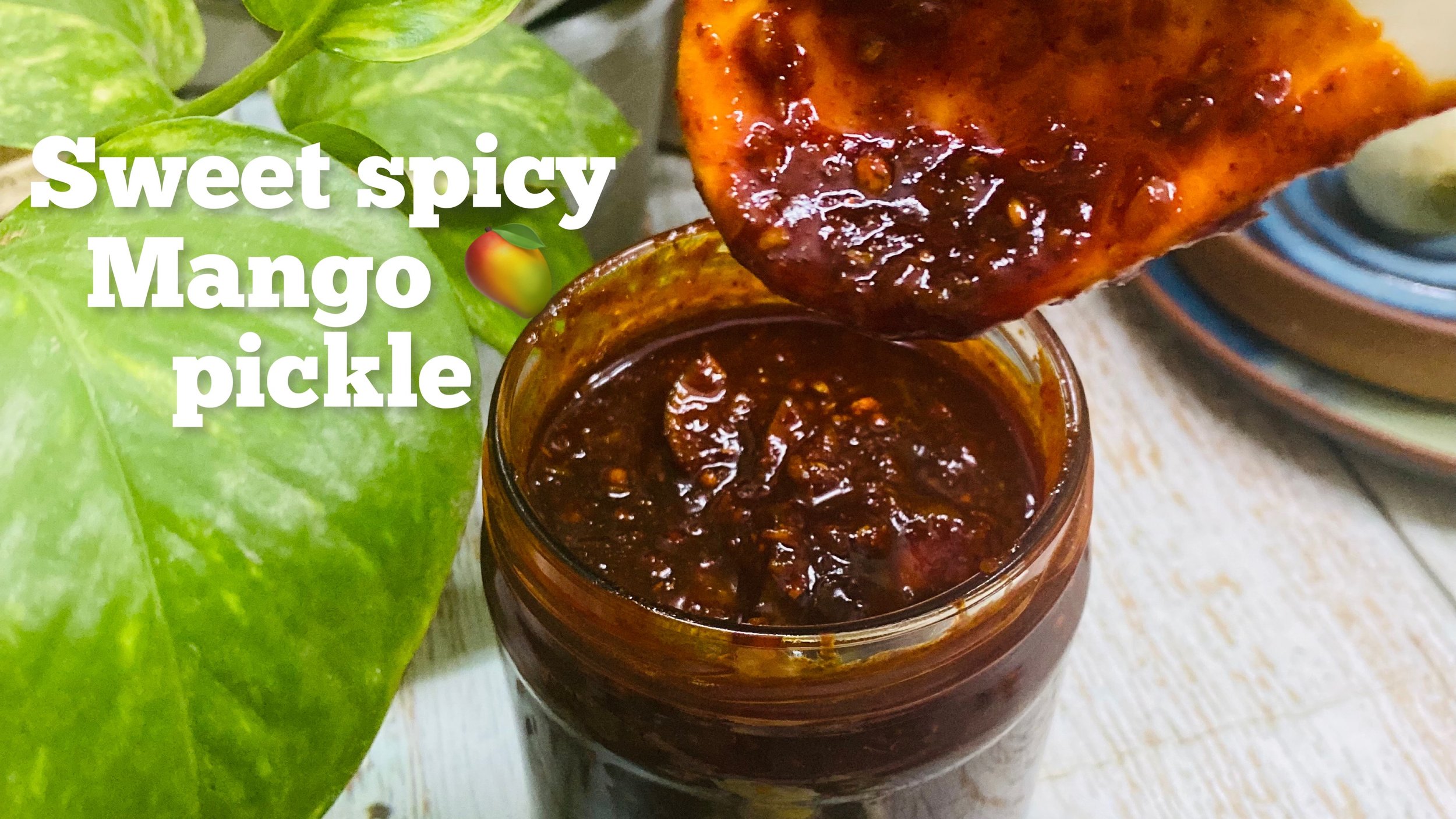
Delicious 😋 quick spicy sweet mango pickle that you can prepare within 3-4 days and enjoy 😊
Ingredients
4 medium size raw mangoes
1.5 cups jaggery powder
1/3 cup red chili powder
1/4 cup oil
1/4 cup Kashmiri chili powder
1 tsp salt
1 tbsp ginger powder
1 tsp asafoetida powder
1/2 tsp turmeric powder
4-5 cloves
Small piece of cinnamon
10-12 peppercorns
4 tbsp fennel
1/4 cup split coriander seeds
1/4 cup split fenugreek seeds
4 tbsp mustard seeds powder
Method
Wash and dry mangoes thoroughly.
Chop into smaller pieces.
Mix with salt and turmeric powder, allow to rest for 4 hours .
After 4 hours drain the mangoes, spread on cloth or a plate to dry inside house or under sun.
Meanwhile take a large mixing bowl, add all spices as shown, add in the dry mango pieces, mix well, cover and keep in kitchen counter .
Within a day or two the jaggery starts melting. By day 4 or 5 the sweet spicy mango pickle is ready .
Store in clean glass jars and store in fridge for longer shelf life.
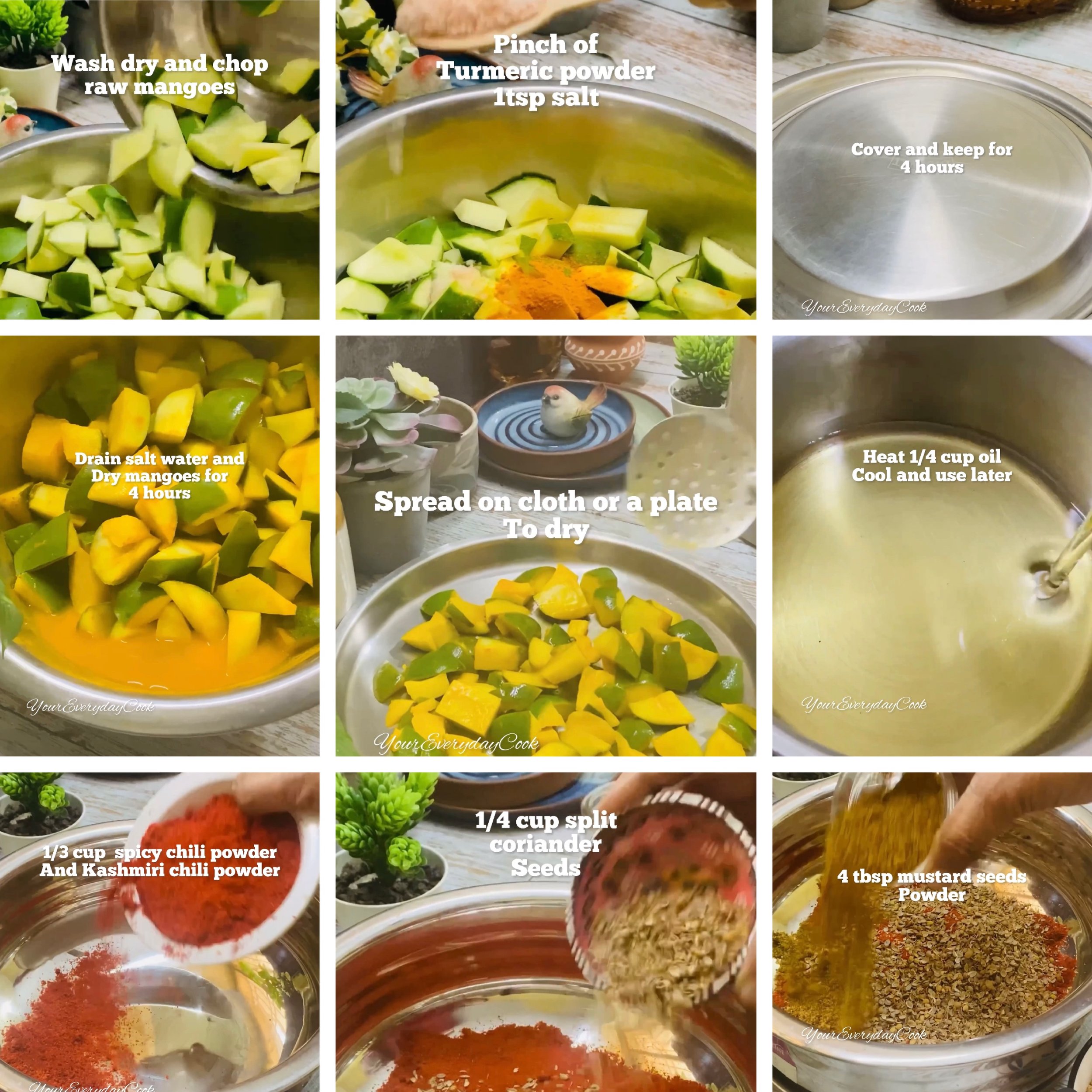
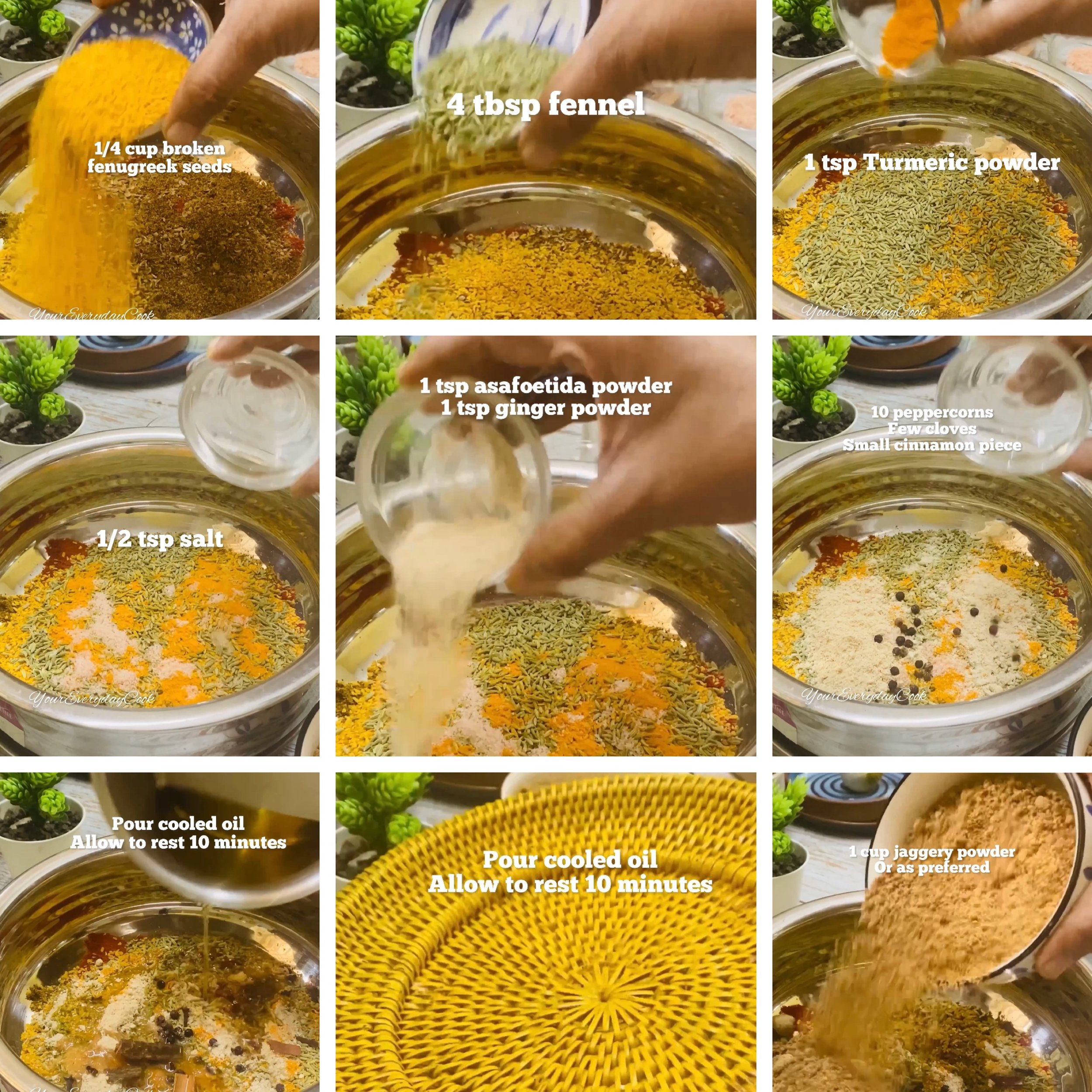
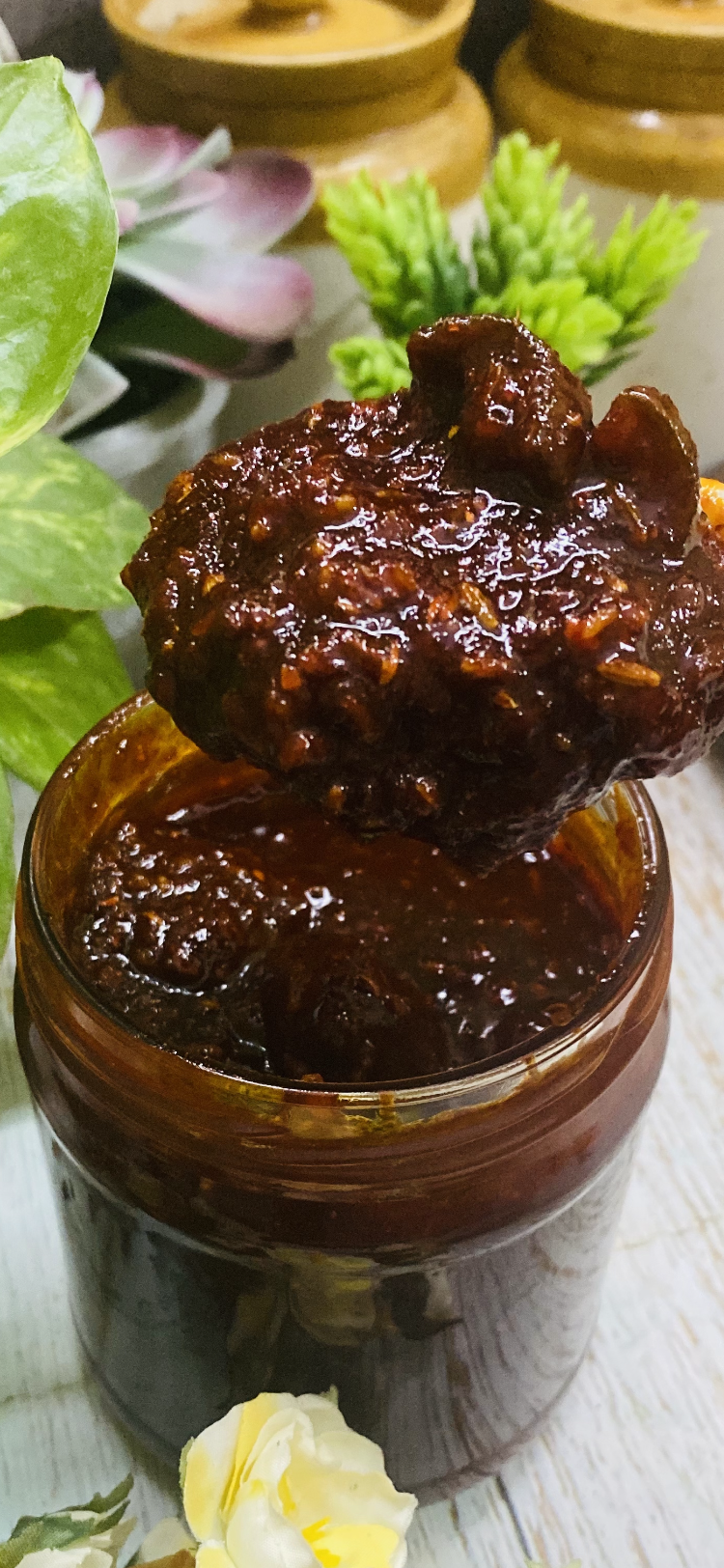
spic sweet mango pickle
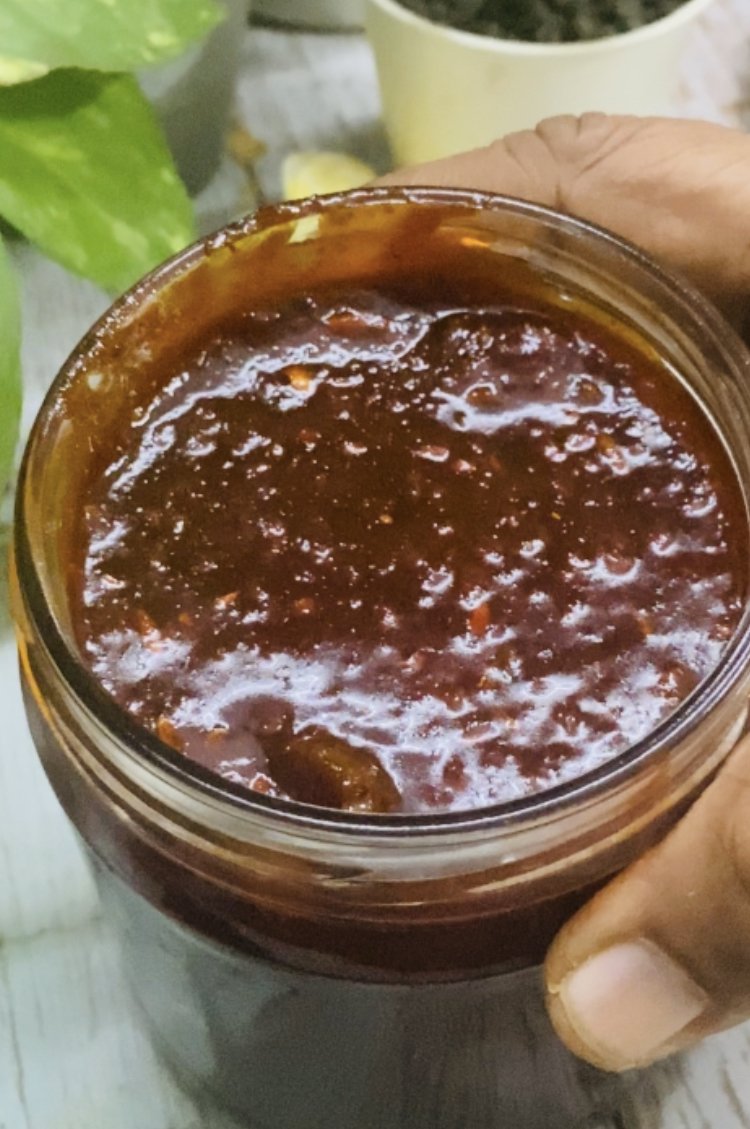
spic sweet mango pickle
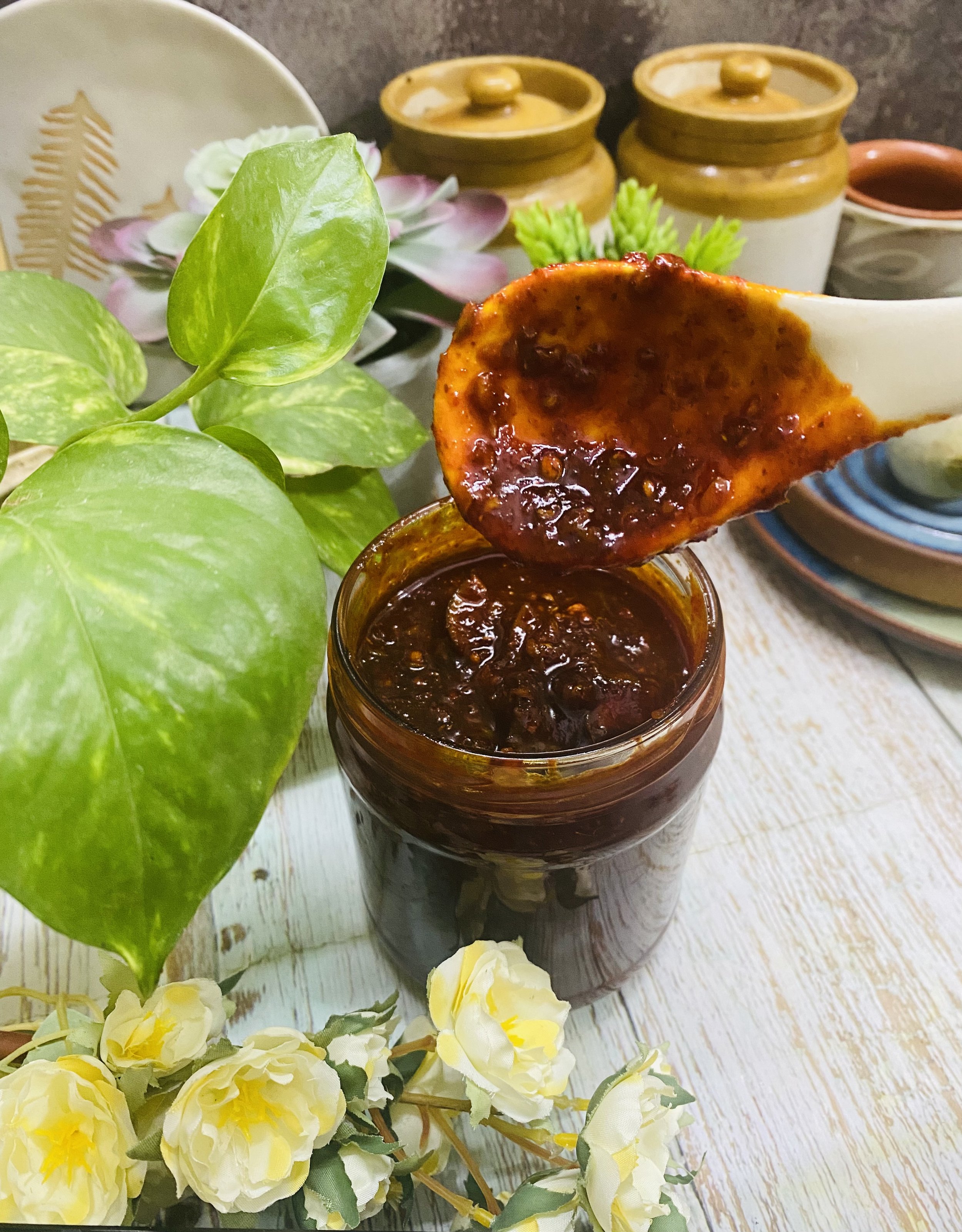
spicy sweet mango pickle
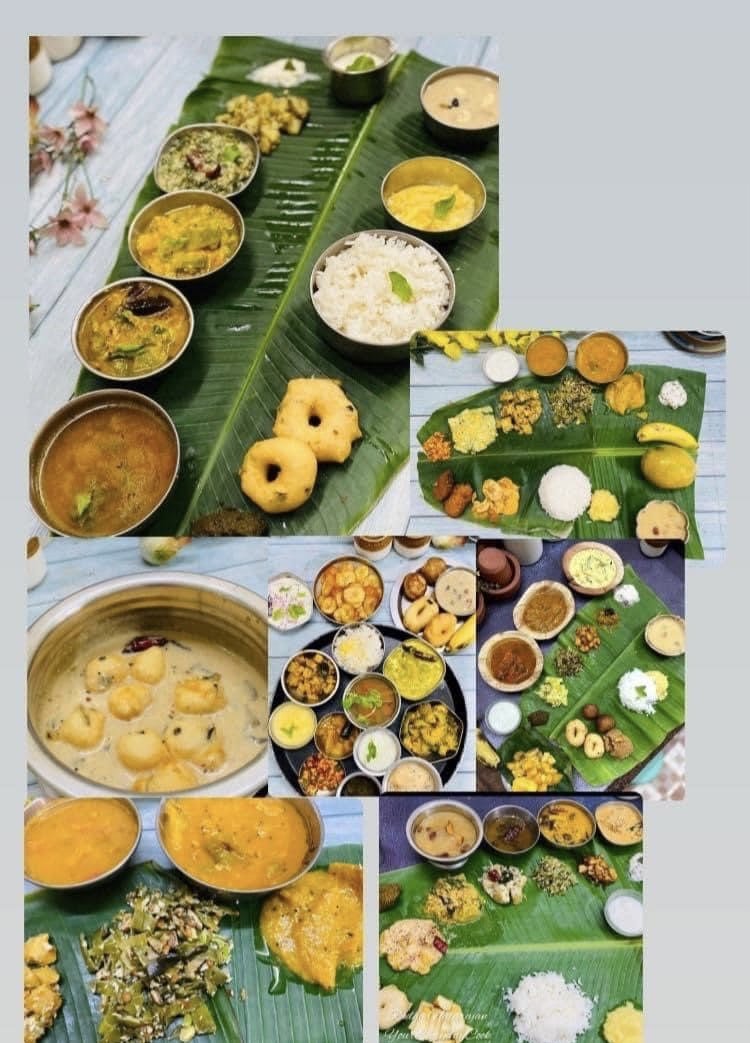
Delicious and healthy poha puttu not only makes a quick evening snack but also a very handy neivediyam for Pooja days ,festivals like Krishna Jayanthi , Navarathri etc .
Tamil New Year, also known as "Puthandu," is celebrated with much enthusiasm and joy among Tamil-speaking people worldwide. It marks the first day of the Tamil calendar year and usually falls on April 14th. This day is filled with rich traditions, cultural festivities, and a sense of new beginnings.
Sri Rama Navami is a Hindu festival, celebrating the birth of Lord Rama. The Rama Navami festival falls in the Shukla Paksha on the Navami, the ninth day of the month of Chaitra in the Hindu calendar. Thus it is also known as Chaitra Masa Suklapaksha Navami, and marks the end of the nine-day Chaitra Navaratri celebrations.
Cinnamon raisin bread, especially is a fantastic breakfast choice because of its comforting flavor, soft texture, and natural sweetness.
The combination of cinnamon and raisins brings a natural warmth and sweetness that makes each bite feel comforting, perfect for a morning treat.
Elaneer Payasam, also known as Tender Coconut Kheer or Coconut Water Payasam, is a refreshing and delightful South Indian dessert made with tender coconut water and coconut flesh. It's a cool and sweet dish, perfect for hot summer days or as a refreshing conclusion to a meal.
Pongal Kuzhambu is a flavorful and tangy curry that is typically served with Pongal, a popular South Indian dish made with rice and lentils. Pongal Kuzhambu complements the mild and savory taste of Pongal, creating a well-balanced meal.
I enjoy baking these eggless burger buns that closely resemble classic brioche buns are soft, slightly sweet, and have a rich, buttery taste with a tender yet slightly chewy texture. These buns are enriched with milk, butter, and a touch of honey , giving them a beautiful golden-brown crust and a light, airy crumb inside.
The word "Thavala" (தவள) in Tamil refers to a traditional cooking pot or a heavy bottomed utensil commonly used in kitchens of the past. These heavy-bottomed bronze or brass vessels were used to prepare a variety of dishes, including this unique Thavala Dosai. The name comes from the method of cooking, where the batter is poured into a well-heated bronze pot (Vengala Paanai), resulting in a crispy, thick, and flavorful dosai.
Karuvepilai Thogayal (curry leaves chutney) is a flavorful and nutrient-rich condiment made by grinding roasted curry leaves with lentils, tamarind, and spices. It has a slightly tangy, earthy, and mildly spicy taste with a hint of bitterness from the curry leaves, balanced by the tamarind.
Karadayan Nonbu or Savitri Vratham is a traditional Tamil festival observed through fasting and the ritual tying of turmeric-smeared yellow threads around the necks. It is a solemn occasion where women pray fervently for the well-being and longevity of their husbands.
Kunuku is a delightful, crispy snack from Tamil Nadu, cherished for its crunchy texture and flavorful taste. Made from a blend of soaked and ground lentils, this deep-fried delicacy is often prepared as a quick evening snack or as part of festive offerings.
Chana Masala is a mildly spiced, tangy, and flavorful dish made with chickpeas (chana) cooked in a tomato-based gravy with onions, garlic, ginger, and spices like garam masala, coriander, and amchur (dried mango powder). Usually it is served with puris, bhaturas, or rice and is enjoyed across India, with regional variations. Every state has its own way of preparing this dish .
Nellikai Rasam, or Amla Rasam, is a tangy and mildly spicy South Indian soup made using Indian gooseberries (amla). The rasam has a well-balanced flavor profile—slightly sour from the amla, heat from black pepper and green chilies, and a subtle sweetness from jaggery.
Barnyard millet dosa is a delightful, healthy alternative to traditional rice dosas, offering unique benefits and taste while maintaining the crispness and texture essential for a great dosa experience.
Here in this recioe I have used Organic Kuthiraivali which is unpolished .
Kuthiraivali ( Barnyard Millet)is a highly nutritious and versatile grain known for its health benefits and culinary adaptability
Delicious sambar rice made easy and yummy with freshly ground ingredients that elevates the taste to another notch .
Create a delectable sambar rice effortlessly, transforming it into a delightful culinary experience with freshly ground ingredients that enhance its flavor profile.
We’ve all enjoyed the rich, flavorful taste of hotel-style sambar, often called Tiffin sambar, and wished we could recreate it perfectly at home. Well, your search ends here! I’m about to share the exact method for preparing the most delicious, authentic hotel-style sambar right in your own kitchen.










